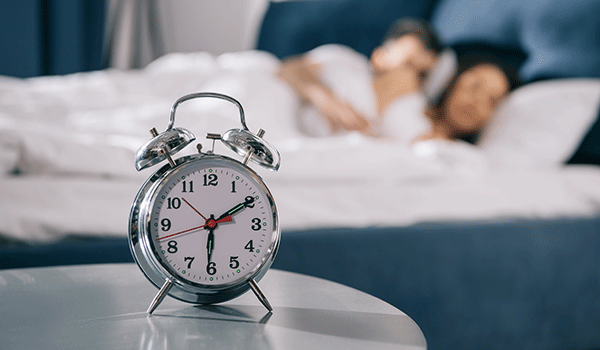
After a superb and productive working day, some relaxing time with family, and finally you crave a good night’s sleep. To give some rest to your weary body and mind, to wind down and travel into the realms of dreams and blissful sleep! Sleep, and a nighttime routine, is an indispensable part of your life, as important as good food, habits, and exercise. It’s a beautiful yet complex process, and part of a wonderful equation that’s essential for survival, though oft-overlooked.
The master organ, the brain, occupies center stage in your sleep cycle. A tiny part, called the hypothalamus, controls most rhythms and these minute connections and circuits whirr rhythmically to guide you through a peaceful night. The medical jargon might be overwhelming, but it is essential to be aware of the fantastic synchrony between the organs and connections in your body.
Let’s discuss a bit about the sleep cycle. After much research, it has been concluded that a sleep cycle consists of four stages (3 NREM and 1 REM). Each cycle can last approximately 90mins (which is not set in stone, it can vary!) and a person experiences several cycles in a single night. NREM (non-rapid eye movement) and REM (rapid eye movement) are the two types of sleep. During each stage of sleep, you undergo different bodily changes, similar to running a course.
We cannot conjure a magic number that determines the exact number of hours of sleep a person needs. It varies between different age groups and it is estimated that an adult requires between 7-9 hours of sleep. It is quite disappointing to note that more and more people have a distorted nighttime routine, aided by increased screen time, stressful jobs, and deadlines to meet.
Why is it necessary to have a sound sleep and a good nighttime routine? Why do you have to break the chain of a vicious cycle of sleepless nights?
- If you’re well-rested, you feel refreshed and energized to tackle the day’s schedule. You are active and your thought processes tend to be organized and logical. It improves concentration and productivity which increases workplace performance.
- It’s a sure-shot way of boosting your emotional and mental well-being. It helps you think straight, view things sensibly and make informed decisions.
- Sleeping is a way to pause and relax, after a long day of wakefulness. It gives a sense of solace when you are emotionally drained and is an excellent way of keeping those tension knots in place.
- It’s an excellent stress buster, and there’s nothing better than a good night’s sleep to think your worries through. Having a refreshing sleep instantly lightens your worries and elevates your mood, somewhat like a mood regulator.
- A peaceful, undisturbed sleep prevents you from becoming overweight, aids in managing depression to an extent, and helps decrease your chances of having heart diseases and related complications. Maintaining a good sleep routine has been found to retard age-related nerve disorders, keeping you focused and sharp.
- A night of disturbed sleep can lead to daytime sleepiness. This can be dangerous, especially while driving, and has an increased probability of accidents. It is also detrimental to a person’s performance.
There is a lot of research being conducted regarding the different cycles of sleep, its relationship between dreams, and the impact of sleep on the health of a person. The recent surge in technology and apps have led people closer to understanding sleep and its importance in their daily lives. These include wearables, arm-bands, specialized in-bed sensors, and mobile applications that record your sleep, sleep behavior and process this data that can be easily analyzed. However, you need to be aware that their accuracy is still under scrutiny.
There are a few simple and effective tips that you can follow for getting into a healthy sleep routine, so let’s walk you through them.
- Set a schedule that you can follow and which works well for you. Try to follow a pattern, like going to bed and waking up at the same time. Once you are used to it, your body automatically adjusts to this routine and it becomes a habit.
- Avoid caffeine, nicotine and reduce alcohol intake in the immediate hours before sleeping. Try simple meditation sessions and breathing exercises to get into the mood.
- Do not take your work to bed- phones, laptops, and tablets are a complete no-no. Instead, read a light-hearted book or listen to soothing music that lull you to sleep.
In this article, we have laid down the basics of a sleep cycle, the benefits of having a good bedtime routine, and easy hacks that, if followed, are sure to assist you in feeling fresh, supercharged, and ready to manage your day!

